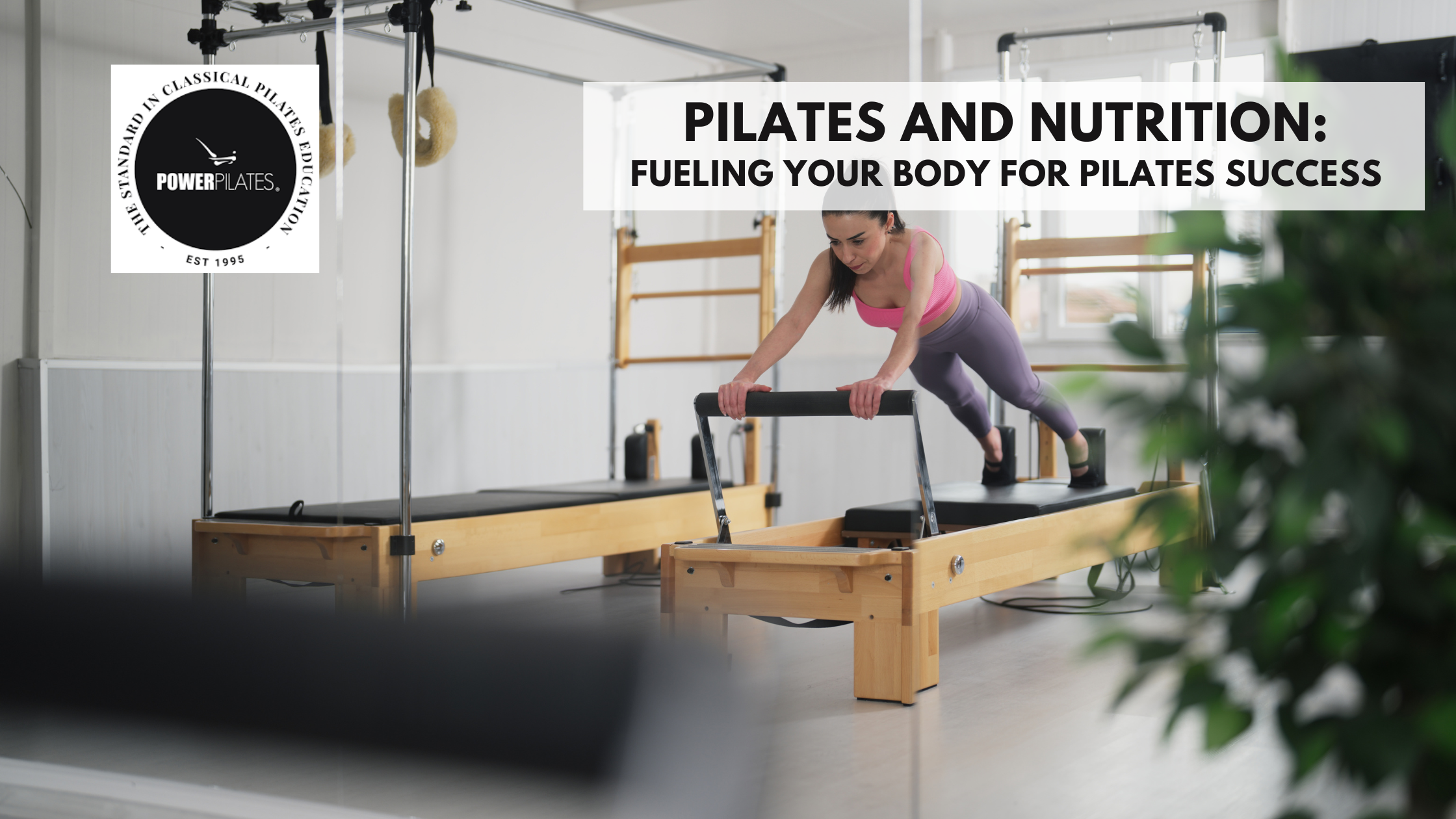Nutrition plays a vital role in our overall health and well-being, and when combined with regular exercise like Pilates, it can amplify the benefits and results. At Pilates Love Studio, we understand the importance of proper nutrition to fuel your body for success in your Pilates practice.
The Role of Nutrition in Pilates:
Just as a car needs the right fuel to run efficiently, our bodies require proper nutrition to perform at their best during Pilates sessions. A well-balanced diet provides the necessary energy, nutrients, and hydration to support muscle function, endurance, and recovery.
Key Nutrients for Pilates Practitioners:
- Protein:
- Protein is essential for repairing and building muscle tissue, making it crucial for Pilates practitioners who engage in regular muscle-strengthening exercises.
- Sources of protein include lean meats like chicken, turkey, and beef, as well as fish, eggs, tofu, tempeh, legumes, and dairy products like Greek yogurt and cottage cheese.
- Consuming protein before and after Pilates sessions helps support muscle repair and growth, aiding in recovery and promoting muscle strength and endurance.
- Complex Carbohydrates:
- Complex carbohydrates are the body’s primary source of energy, providing the fuel needed for physical activity and exercise.
- Whole grains like oats, quinoa, brown rice, and whole wheat products are excellent sources of complex carbs, along with fruits, vegetables, and legumes.
- Including complex carbohydrates in your diet before Pilates sessions provides sustained energy levels, helping you power through your workouts and maintain focus and stamina.
- Healthy Fats:
- Healthy fats are essential for brain function, hormone production, and joint health, all of which are important for overall well-being and performance in Pilates.
- Sources of healthy fats include avocados, nuts (such as almonds, walnuts, and cashews), seeds (like chia seeds and flaxseeds), olive oil, fatty fish (such as salmon and mackerel), and coconut oil.
- Incorporating healthy fats into your diet provides satiety, supports nutrient absorption, and helps maintain the health of your heart, brain, and joints, enhancing your Pilates practice.
- Hydration:
- Proper hydration is essential for maintaining fluid balance, regulating body temperature, and supporting overall bodily functions.
- Water is the best choice for staying hydrated. Still, electrolyte-rich beverages like coconut water or sports drinks can be beneficial for replacing lost electrolytes during longer or more intense Pilates sessions.
- Aim to drink water throughout the day and before, during, and after Pilates sessions to ensure adequate hydration and optimize performance and recovery.
Nutrition Tips for Pilates Success:
- Balanced Meals:
- Eating balanced meals that contain a combination of protein, carbohydrates, and healthy fats ensures you get a variety of nutrients to support your Pilates practice.
- Aim to include a source of lean protein, complex carbohydrates, healthy fats, and plenty of fruits and vegetables in each meal.
- Balanced meals provide sustained energy, support muscle repair and growth, promote satiety, and help maintain stable blood sugar levels, all of which are beneficial for Pilates performance and overall health.
- Pre-Workout Snacks:
- A small snack containing carbohydrates and protein 1-2 hours before your Pilates session can provide the energy you need to power through your workout.
- Opt for easily digestible options like a banana with nut butter, Greek yogurt with fruit, or a small serving of whole grain crackers with cheese.
- Pre-workout snacks help prevent hunger, stabilize blood sugar levels, and provide a readily available source of energy to fuel your Pilates practice.
- Post-Workout Nutrition:
- After your Pilates session, refuel your body with a balanced meal or snack containing carbohydrates and protein to support muscle recovery and replenish glycogen stores.
- Aim to eat within 30-60 minutes post-workout to optimize recovery and enhance muscle repair.
- Options include a protein smoothie with fruit, a turkey and avocado wrap, or a balanced meal consisting of lean protein, complex carbohydrates, and vegetables.
- Post-workout nutrition is essential for repairing muscle tissue, reducing muscle soreness, and replenishing energy stores, helping you recover faster and get the most out of your Pilates practice.
By focusing on these key aspects of nutrition and hydration, you can fuel your body for Pilates success, optimize your performance, and support your overall health and well-being. Remember to listen to your body’s cues, stay hydrated, and choose nutrient-rich foods to support your Pilates practice and achieve your fitness goals.
Incorporating proper nutrition into your lifestyle is essential for achieving success in your Pilates journey. You can sign up for a Free Mat Class at Pilates Love Studio this coming Saturday March 23, 2024 at 08:00 am EDT. Or schedule a complimentary consultation with our expert instructors to identify the ideal routine for you by sending an email to info@pilateslovestudio.com

